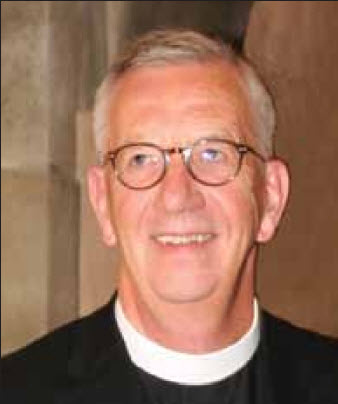Katharine Jefferts Schori spent much of her time as Presiding Bishop of TEC embroiled in lawsuits against ACNA parishes and dioceses who were trying to hang on to their buildings. I met her in 2010 at the General Synod of the Anglican Church of Canada and asked how a Christian denomination could justify launching so many lawsuits. Her response was that she had a “fiduciary responsibility towards TEC”. The implication that, in her view, it was her most important responsibility, was not lost on me.
Having so much experience in promoting harmony and good-will must have been what prompted the Bishop of BC, Logan McMenamie to invite Jefferts Schori to the Diocese to impart her timeless wisdom – distilled over many years of acrimonious litigation – about Truth and Reconciliation.
I’m not sure if Logan is paying her or not, but I can only assume she is not neglecting her fiduciary responsibility to herself.
From here:
Truth and reconciliation is a response to colonialism but for individuals it’s a chance to enlarge our viewpoints by hearing experiences of others, a pioneering clergywoman says.
Bishop Katharine Jefferts Schori, former presiding bishop of the Episcopal Church in the U.S., the first woman to be elected a primate in the worldwide Anglican Church, said truth and reconciliation at its most basic, is about listening and respect.
“It’s really an anti-colonialism response,” said Jefferts Schori in a telephone interview from her home in Nevada.
“It encourages people to hear each other’s stories and perspectives and to respect their differences rather than imposing your own view.”
Jefferts Schori is speaking Thursday at the University of Victoria and will be at Christ Church Cathedral in Victoria for a forum on Sunday.
Jefferts Schori was American Episcopal Church Presiding Bishop from 2006 to 2015. She has served as Bishop of Nevada and is currently a visiting professor at Church Divinity of the Pacific.
She has degrees in biology and a PhD in oceanography, serves on the Earth and Life Studies board of the U.S. National Academy of Sciences and was a member the Council on Neighborhood and Faith-Based Partnerships when Barack Obama was president.
Bishop Logan McMenamie, of the Diocese of British Columbia, said Jefferts Schori has demonstrated incredible leadership in the church and community.
“It wasn’t easy for her with some of the other primates throughout the world,” McMenamie said.
“But she has always demonstrated amazing leadership, and stood tall during some very difficult times in the life of the [Anglican] communion.”
Jefferts Schori said: “A founding principle of Anglicanism is the Gospel, the faith, is supposed to grow and develop in unique ways in different contexts.
But Anglicans haven’t always thought so, she said. In particular, those working as colonial missionaries thought only their views and contexts were correct.
“But it’s core to what it means to be an Anglican today,” she said.
“[Faith] takes different shapes in different contexts.”
For example, she said the U.S. Anglican community has experienced a new creative experience listening to how the Christian Gospels have found new contexts in indigenous societies.
“You begin to develop a more creative community as a result,” Jefferts Schori said.
“There is an ability to see truth in different contexts and find a larger picture than any one individual can find on their own.”


 From
From  There was a time – I’m almost old enough to remember it – when the pulpit of the Anglican church was used to preach on the salvation of souls; progress marches ever on, so now the message is the salvation of salmon.
There was a time – I’m almost old enough to remember it – when the pulpit of the Anglican church was used to preach on the salvation of souls; progress marches ever on, so now the message is the salvation of salmon.